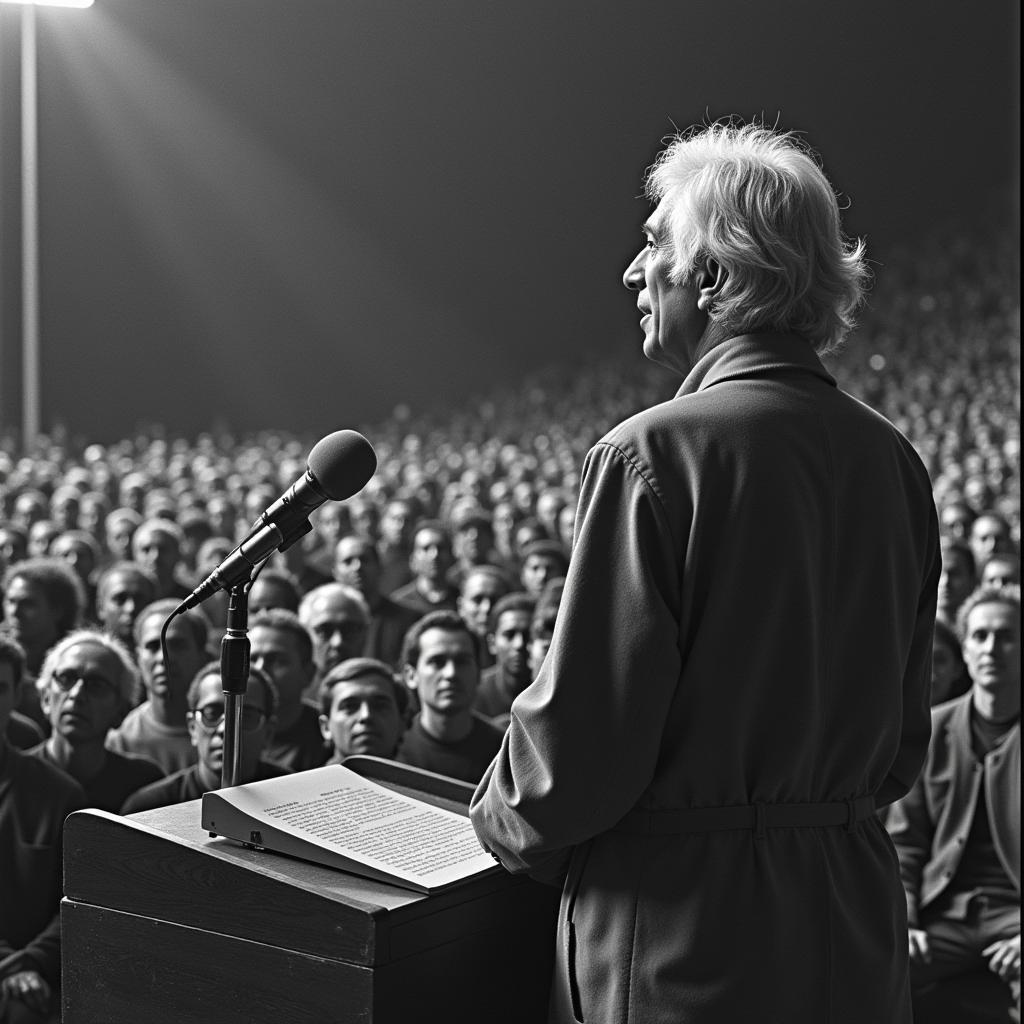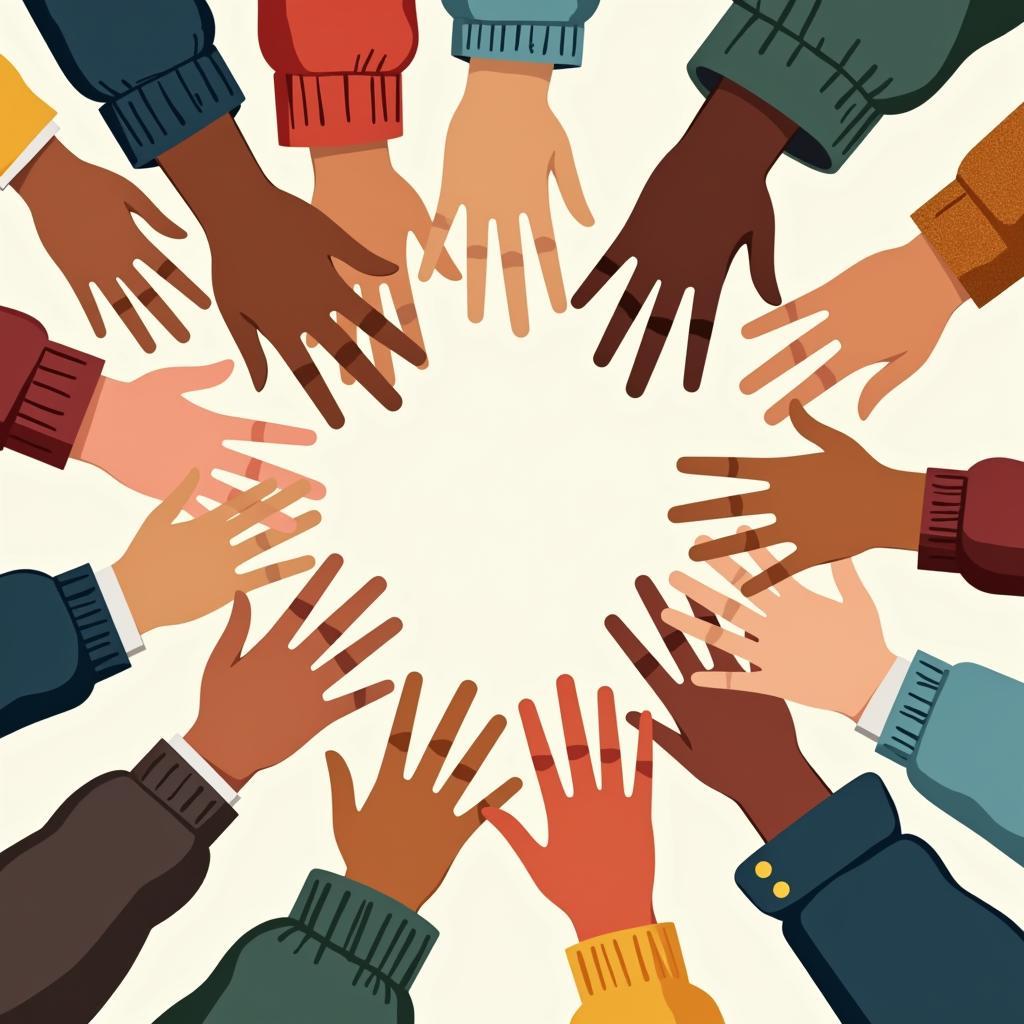Jiddu Krishnamurti, the renowned philosopher and spiritual teacher, argued that our society is sick, riddled with conflict, competition, and a relentless pursuit of material gain. He believed that this “sickness” stems not from external factors but from our own internal chaos – the conditioning, prejudices, and fears we harbor within.
 Krishnamurti Delivering a Lecture on Societal Ills
Krishnamurti Delivering a Lecture on Societal Ills
The Root of the Problem: A Fragmented Self
Krishnamurti emphasized that we are conditioned to identify with our thoughts, beliefs, and desires, creating a fragmented sense of self. This fragmentation, he argued, leads to fear, insecurity, and a constant need for validation from external sources. We seek solace in possessions, status, and power, perpetuating a cycle of desire and dissatisfaction. This, according to Krishnamurti, is the root cause of our social ills.
The Illusion of Separation
Furthermore, Krishnamurti challenged the notion of individuality as we commonly understand it. He asserted that our sense of separation from one another and the world around us is an illusion. We are interconnected, part of a vast web of life, and our actions have far-reaching consequences.
 Hands Reaching Out to Each Other in Unity
Hands Reaching Out to Each Other in Unity
The Path to Healing: Inner Transformation
Krishnamurti believed that true healing for both ourselves and society lies not in external reforms but in radical inner transformation. He advocated for self-awareness, a keen observation of our thoughts and feelings without judgment. Through this process of self-inquiry, we begin to understand the root of our conditioning and the patterns that govern our lives.
Freedom from the Known
Breaking free from these patterns requires courage, for it demands questioning everything we have been taught and told. Krishnamurti termed this process “dying to the known” – a shedding of our preconceived notions, beliefs, and identities to embrace the unknown with open arms. This, he claimed, is the path to true freedom and lasting peace.
A Call to Action: Living With Awareness
Krishnamurti’s message resonates deeply in a world grappling with unprecedented challenges. His teachings offer a profound reminder that lasting peace begins within each of us. By cultivating self-awareness, compassion, and a sense of interconnectedness, we can create a ripple effect, transforming not only ourselves but also the world around us.
 A Person Meditating in Nature
A Person Meditating in Nature
FAQs
1. What did Krishnamurti mean by a “sick society”?
Krishnamurti used the term “sick society” to describe a world plagued by conflict, competition, violence, and injustice. He believed this stemmed from the inner turmoil and fragmentation within each individual.
2. How can we achieve inner transformation according to Krishnamurti?
Krishnamurti emphasized self-awareness and observation of our thoughts and feelings without judgment as crucial steps towards inner transformation.
3. What is the significance of “dying to the known”?
“Dying to the known” refers to letting go of our pre-existing beliefs, conditioning, and identities. Krishnamurti saw this as essential for true freedom and personal growth.
4. How can individual change lead to a more peaceful world?
Krishnamurti believed that as individuals cultivate inner peace and understanding, their actions and interactions with others will reflect those positive changes, creating a ripple effect throughout society.
5. Where can I learn more about Jiddu Krishnamurti and his teachings?
Numerous books, lectures, and online resources are available that delve deeper into the philosophy and teachings of Jiddu Krishnamurti.
Need Support?
If you need support on your journey toward peace, please contact us:
Phone Number: 02043854663
Email: [email protected]
Address: Khu 34, Bac Giang, 260000, Vietnam.
Our dedicated support team is available 24/7 to assist you.